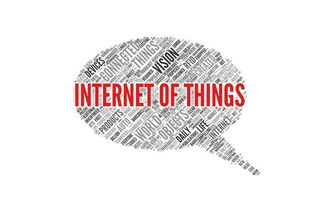Intel touts ROI benefits of the Internet of Things
Billion dollar market will also create clean tech jobs, says Intel VP

The Internet of Things (IoT) may not have taken off in the consumer space yet, but there are numerous commercial deployments which are giving businesses the edge over their competitors.
Custom IoT infrastructure has been deployed by various industries - ranging from retail to freight delivery - because it is making a significant impact on the bottom line.
"Businesses can see the benefits of the IoT by making simple ROI calculations," Ton Steenman, VP of Internet of Things at Intel told IT Pro.
"Executives can say, 'If I invest x amount of money, I can save y amount of money and return z to the bottom line', so deploying IoT infrastructure is an unemotional business driven decision."
Steenman gave the example of US trucking firm Vnomics, which has deployed hundreds of sensors on each of its trucks to help optimise fuel economy, safety and maintenance. On-board data is gathered using an Atom device and then sent to the Vnomics datacentre where it is processed and analysed for trends.
IoT to boost infrastructure & create jobs As infrastructure is connected up in cities like London, Steenman expects there to be massive improvements in traffic flow, pollution monitoring, smart parking, asset tracking and intelligent routing. He also predicts self-driving cars to be around before 2020.
"There will be a whole new class of clean tech jobs created via city monitoring. People will be needed to install and provision sensors and we will have to build analytics and applications/services to take advantage of the data. On top of that start-ups will pop up to make use of the data on offer."
Get the ITPro. daily newsletter
Receive our latest news, industry updates, featured resources and more. Sign up today to receive our FREE report on AI cyber crime & security - newly updated for 2024.
Of course Intel has the potential to generate billions of dollars from this market as it wants to be the premier end-to-end provider.
The firm spun-off its Internet of Things business into a separate division in the last quarter. The head of the IoT division reports directly to the CEO Brian Krzanich, signalling the importance of needing to generate a revenue stream from this market.
Intel is planning on making a big push into the IoT market with its yet-to-be-released low-power Quark chip. This will allow the chipmaker to build energy efficient, small footprint sensors and gateways, which can then feedback information datacentres for analytics purposes.
"Quark is a big part of silicon footprint growth but the IoT is end-to-end so all the other divisions from software, datacentre, network and gateway capabilities will also benefit from growth," Steenman added.
But with ARM vendors such as Qualcomm also looking to make a play in the market, competition in the IoT space is expected to be intense.
Most Popular





